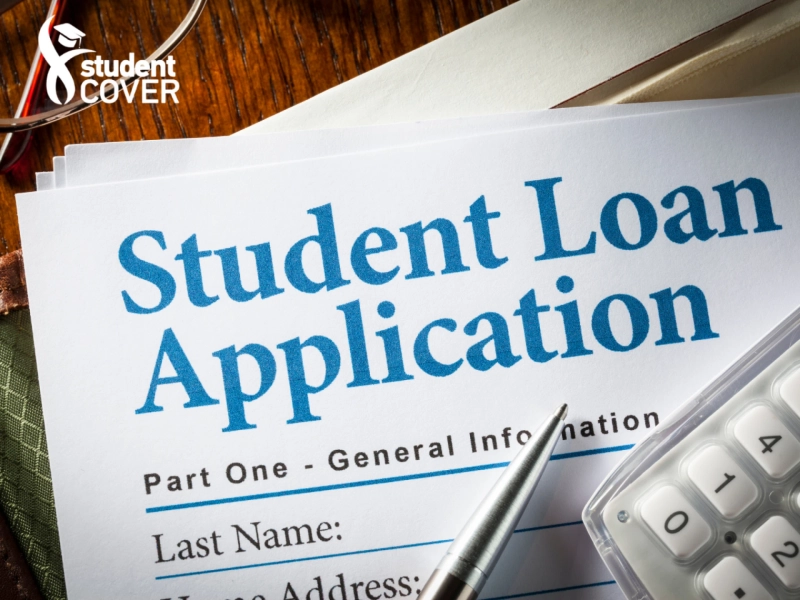Securing an education loan for abroad studies is a vital step for Indian students aspiring to study in international universities. Whether it’s for an MS in the U.S., MBA in Canada, or a degree in Germany, a study loan for abroad helps cover tuition, living expenses, and travel costs. However, many students face frustrating delays during the loan approval process—often due to avoidable errors.
These delays can jeopardize your admission, visa application, or even your travel plans. To help you navigate the process smoothly, this blog outlines seven common mistakes that cause education loan to study abroad approvals to get delayed—and how to avoid them.

1. Applying Too Late
One of the biggest mistakes students make is applying for their education loan for studying abroad at the last minute. Loan approvals can take anywhere from 2 to 4 weeks (or more), depending on the lender, type of loan, and documentation.
Some universities require proof of funding before issuing I-20 or CAS letters, which are essential for visa applications. Apply as soon as you receive your admission letter to avoid unnecessary delays. Starting early also gives you time to compare lenders and negotiate better terms.
2. Incomplete Documentation
Submitting incomplete or incorrect documents is a frequent cause of delay. Lenders require a set of standard documents such as:
- Admission letter from the university
- Academic records
- Income proof of co-applicant
- Collateral papers (for secured loans)
- KYC documents (Aadhar, PAN, passport)
Even a small discrepancy, such as a mismatch in name spelling or missing signature, can cause processing delays. Use the lender's checklist and double-check every document before submission.
3. Not Choosing the Right Lender for Your Profile
Different banks and financial institutions cater to different student profiles. For instance, public sector banks prefer strong collateral and offer lower interest rates, but their processing time is often slower. Private banks and NBFCs are faster but may charge higher interest rates for unsecured loans.
Choosing a lender that doesn’t align with your academic background or financial profile can lead to rejections or prolonged evaluations. Research thoroughly or seek advice from loan consultants to find the best match for your situation.
4. Overlooking Collateral Requirements
If you’re applying for a secured education loan to study abroad, not understanding collateral valuation or documentation rules can delay approval. Students often submit incomplete property documents or fail to meet legal requirements for mortgage registration.
Ensure your collateral meets the bank's criteria and that your property documents are updated and legally clear. If your loan is unsecured, check if the lender requires a minimum income level or high academic standing.
5. Unprepared Co-Applicants
For both secured and unsecured study loans for abroad, co-applicants (typically parents or guardians) play a crucial role. Their income, credit score, and documentation are scrutinized during evaluation.
Delays often happen when co-applicants can’t provide required income proofs like salary slips, ITRs, or bank statements. Educate your co-applicant about the requirements early in the process and collect all their documents in advance.
6. Not Responding to Lender Queries Promptly
Loan officers might contact you for clarifications, additional documents, or verification steps. Delayed responses from students or co-applicants can stall the approval process significantly.
Be proactive. Check your emails and messages daily and respond to any lender communication immediately. If you’re working with a loan consultant or agent, stay in regular touch to ensure there are no bottlenecks.
7. Ignoring Processing Time Differences
Many students assume all banks approve loans in a similar timeframe, which is not true. Public banks like SBI or Bank of Baroda may take up to 4–6 weeks for a secured education loan for studying abroad. In contrast, private banks and NBFCs may process unsecured loans in 7–10 days.
If you’re short on time, go for a lender known for faster approvals—even if it means slightly higher interest. You can always refinance later after securing your visa or starting your course.
Final Thoughts
Getting an education loan for abroad doesn’t have to be stressful. By avoiding these seven common mistakes, you can significantly reduce approval delays and ensure your academic journey begins on time.
Here’s a quick recap:
- Apply early
- Prepare complete documentation
- Choose the right lender
- Clarify collateral details
- Ensure co-applicant readiness
- Respond quickly to queries
- Understand bank timelines
A study loan for abroad is a critical enabler for your international education. Be meticulous, stay informed, and seek expert guidance if needed. With the right preparation, your education loan to study abroad can be approved smoothly, setting you up for success overseas.



